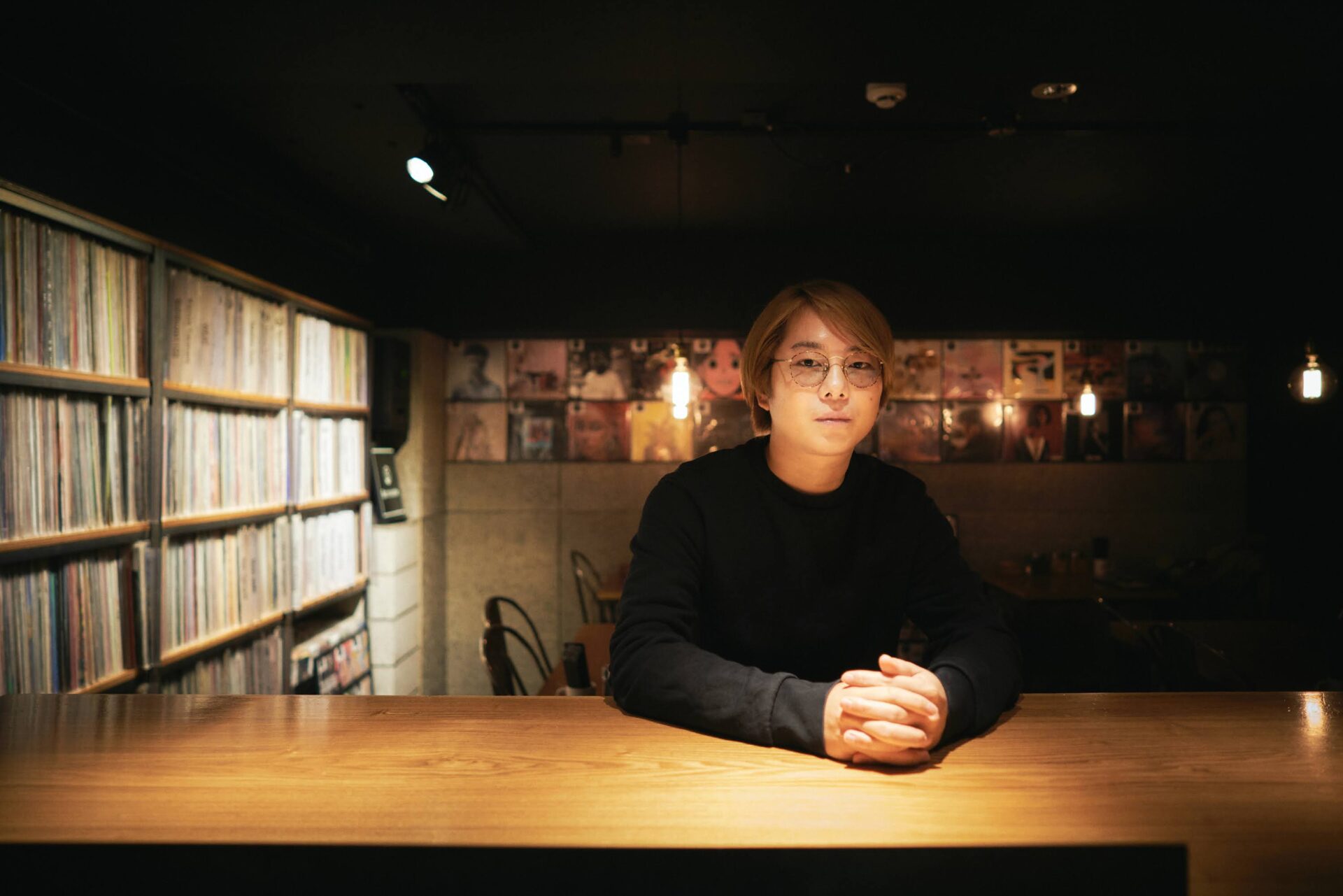Vynil records, CDs, cassette tapes, MDs, music streaming–the way we listen to music has changed over generations. Improvements in portability, accessibility, and storability led to the birth of new ways of listening to music. In terms of changes in the quality of sounds itself, the most recent update that comes to mind is the emergence of “high-resolution” audio, which has higher quality sound compared to that of CD recordings, and a frequency range that exceeds the human hearing range.
The Spincoaster Music Bar in Yoyogi, Tokyo, is a music bar where one can experience the differences in these various music players. It is known as an evening gathering spot for music creators and those with deep love for music.
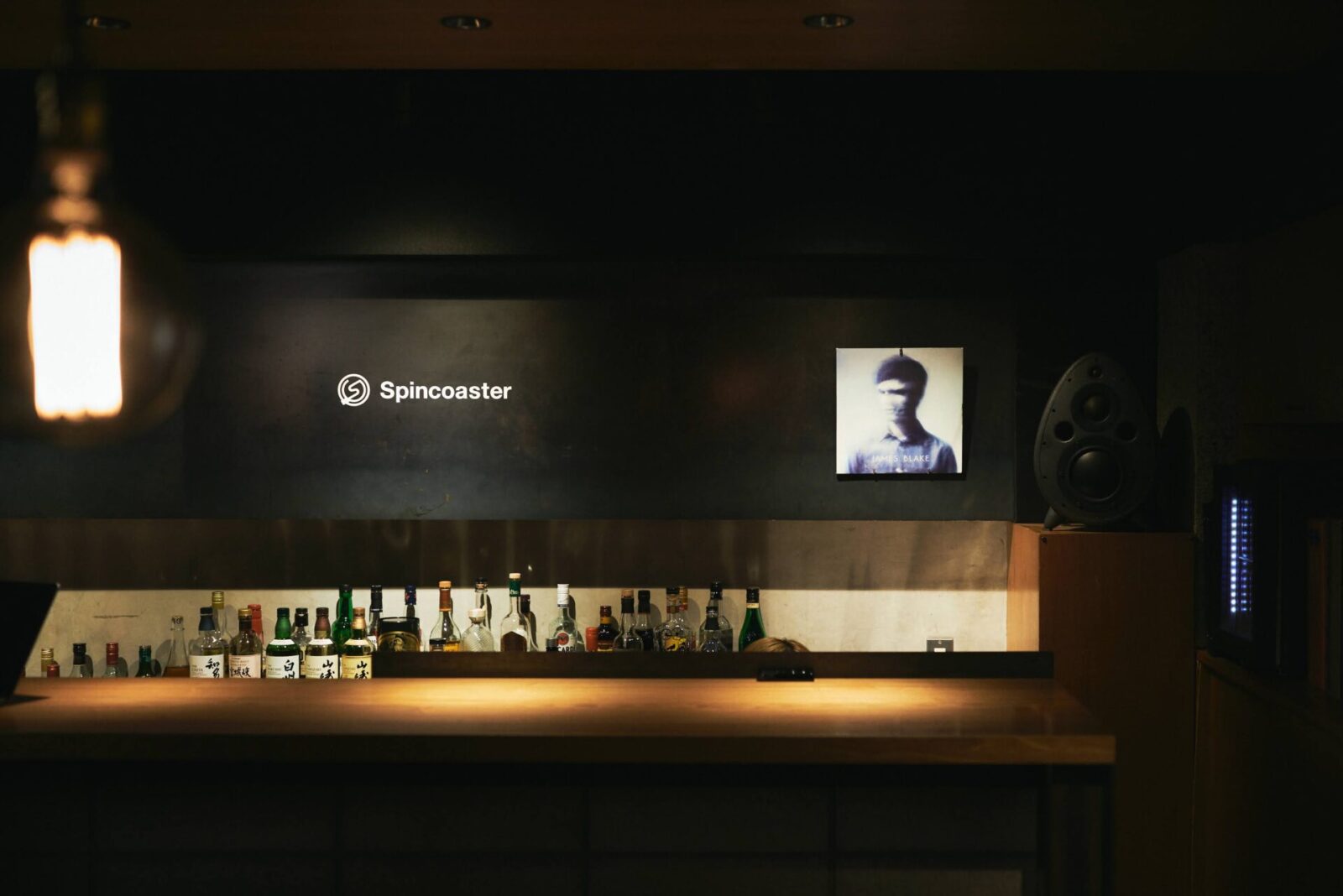
The bar allows you to enjoy both high-resolution music and vinyl records. The speakers and sound absorbing materials in the room are carefully selected to create an environment where you can experience acoustics that are equivalent to that of a music recording studio.
The sound system used to play the high-resolution music is an egg-shaped monitor speaker called Koon, which is also used as studio monitor speakers by professional musicians. The “musikelectronic geithain RL904,” which creates a sound that is closest to the original recordings, is used to play the vinyl records. The sound systems in place optimize the music listening experience.
To give the sound systems a test, I asked to hear the high resolution recording of an artist’s acoustic recording. The three dimensional sound felt as if the band was in the room performing live right in front of me.
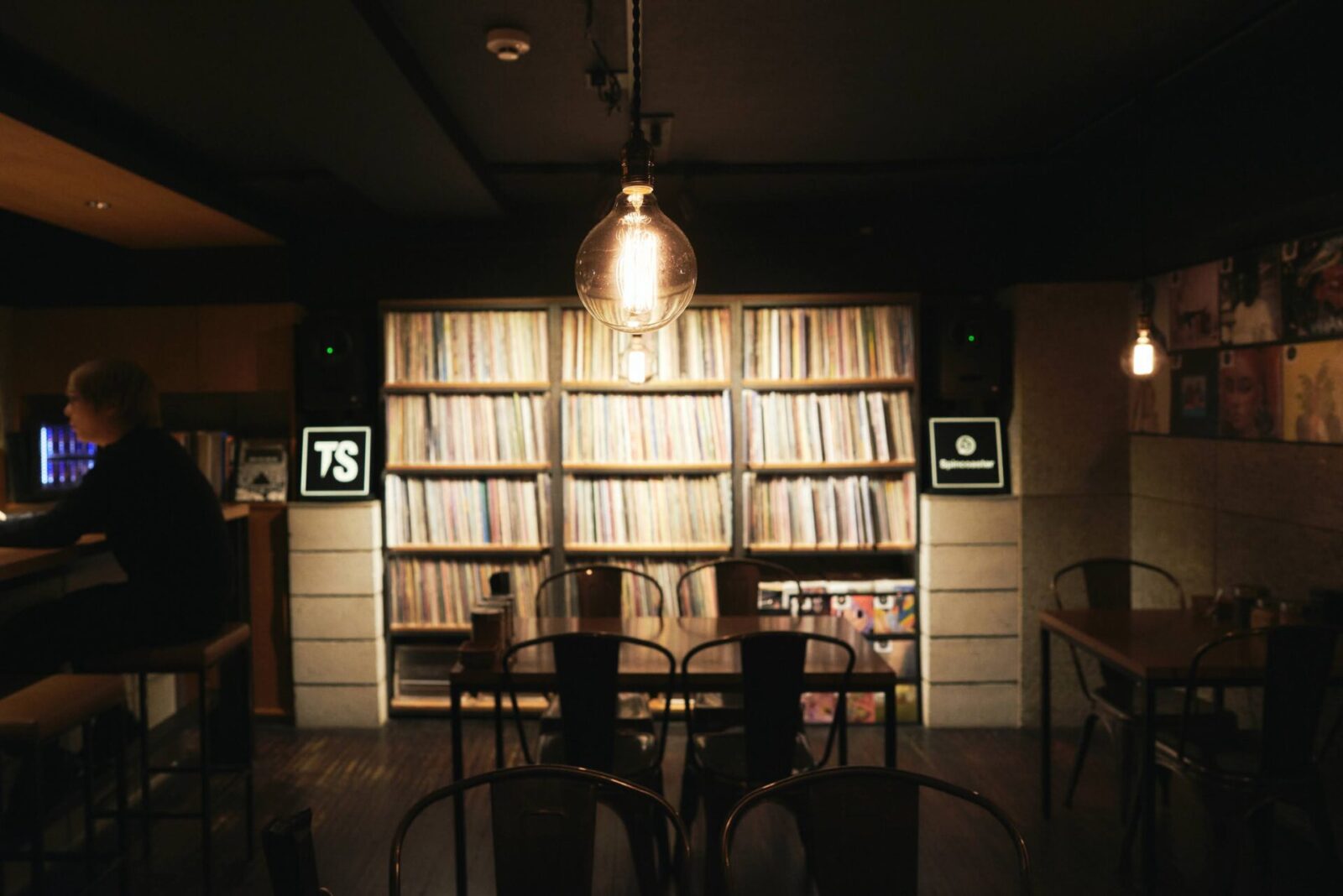
Jun Hayashi is the owner and creator of Spincoaster Music Bar. After working at a major record company he founded Spincoaster Inc. and opened the bar as “a place for people to communicate through music.”
Spincoaster Inc. not only runs this bar. It is involved in a wide range of businesses, from music related media management, app development to event hosting. We talked to Hayashi about what led him to pursue a career in music, his passion for creating spaces to enjoy music and his vision for the future of the music business.
Building a music creator community
“Spincoaster was originally a digital media company,” says Hayashi. “I wanted to create something like Pitchfork (an American music review website that became popular for introducing indie music) and a website that feels like a record shop where the store clerks tell you about their favorite pop music. I started the website while I was still working at a major recording company.”
“After a while, I felt that it was gaining momentum so I founded the company and became independent. I opened the bar after that because I wanted to create a space where people can come and really enjoy music.”
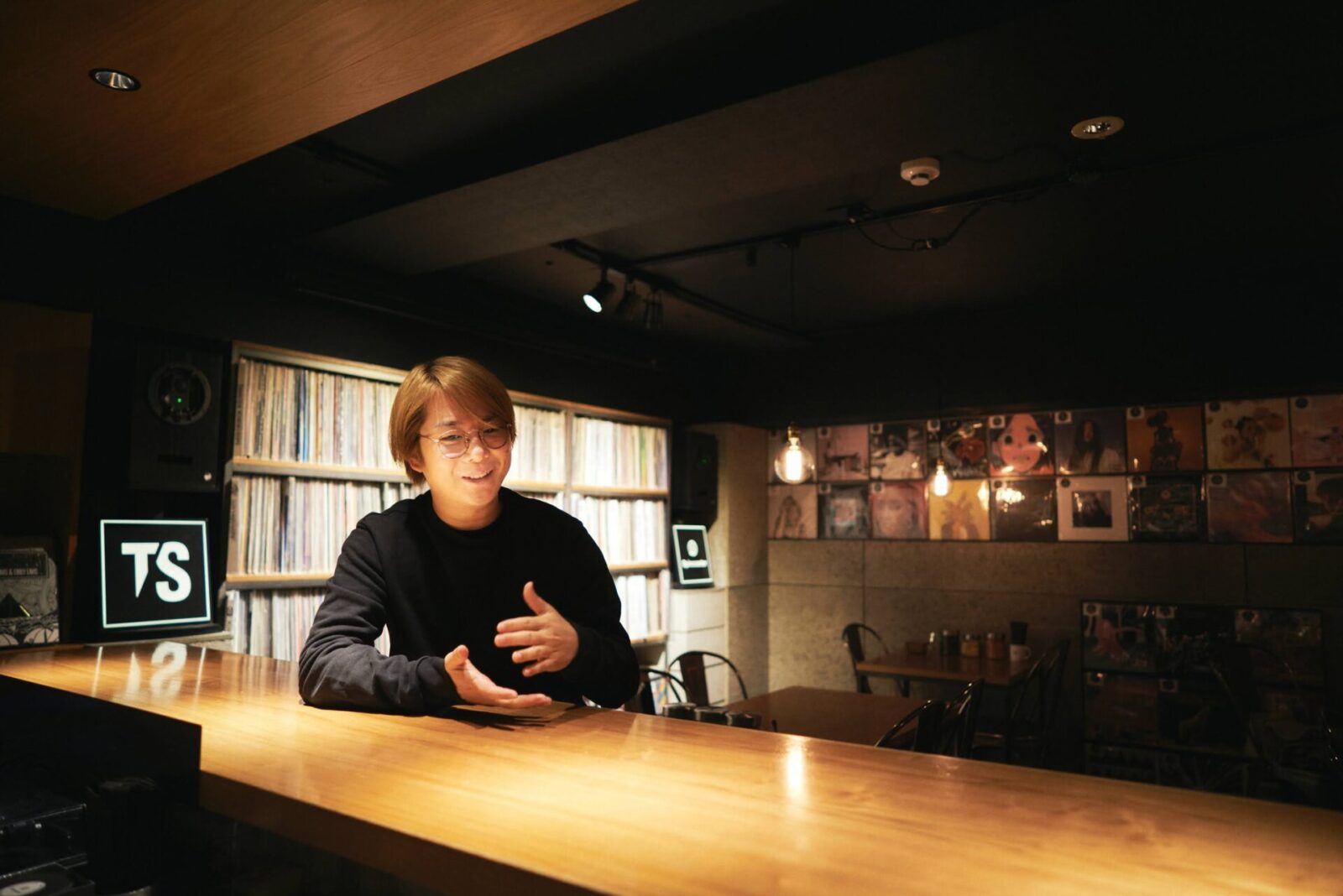
Hayashi was born in Tokyo in 1986. He had his own computer before any of his peers. He enjoyed sharing music by exchanging CDs with his friends and talking to people of various age groups about music online.
These early experiences strongly influenced his desire to create a space for people to gather and enjoy music.
“This is just my personal opinion, but I think that the fun of music is not only about listening to it on a personal level. I think a big part of enjoying music is talking to others about it and sharing the experience of listening,” says Hayashi.
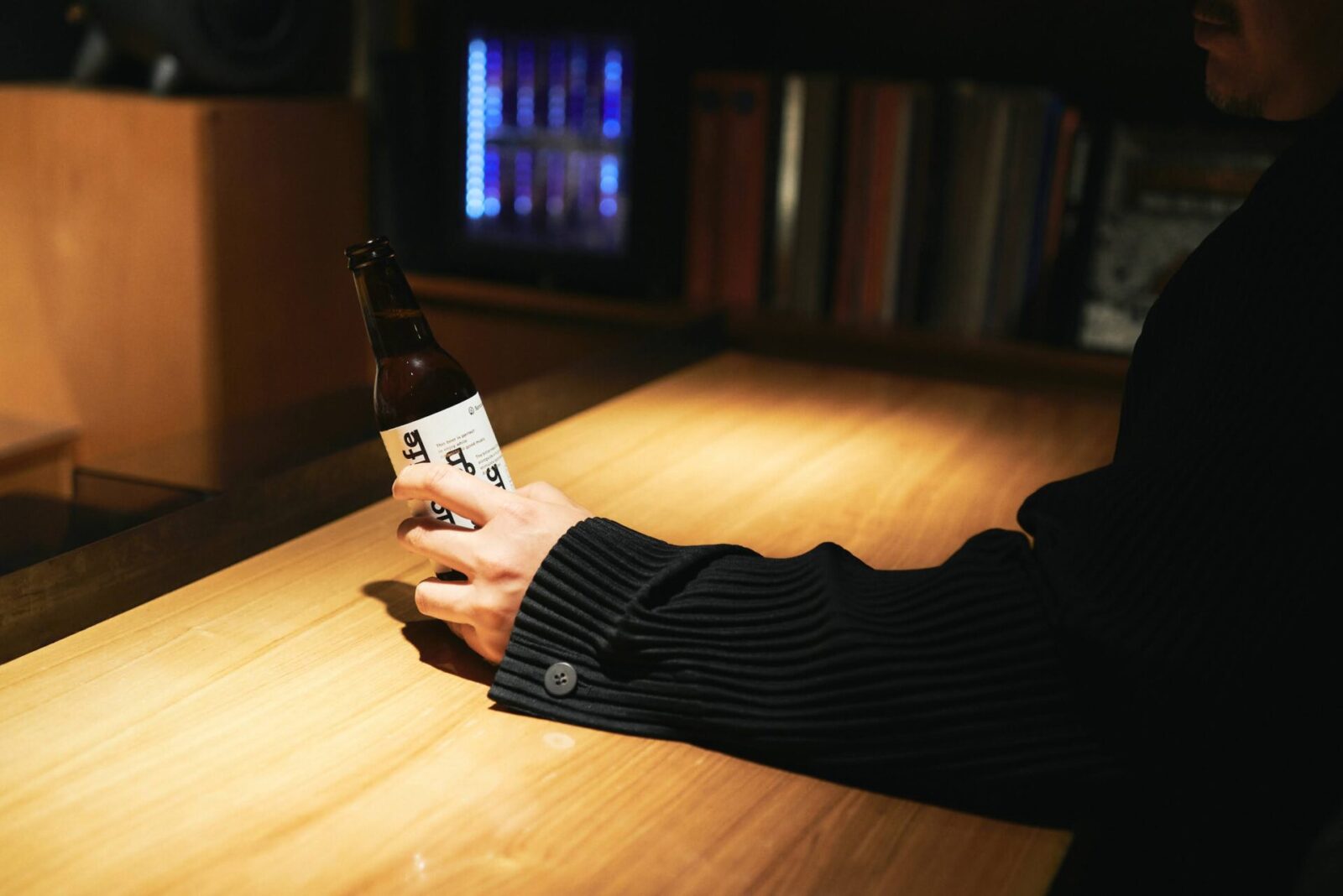
Hayashi looks back on his youth saying, “I was not particularly good at making conversation, but my knowledge of music helped me communicate with the people around me.”
“I think everyone talks about the new songs released by their favorite artists. There were times when I made new friends after lending them a CD and asking what they thought about it afterwards. I believe that no matter what age we live in, there is always a form of communication through music.”
The dedicated record shelf for members and commitment to new music
The Spincoaster Music Bar has a shelf that holds onto vinyl records for their member customers.
Members can rent a space on the shelves to keep their own vinyl records, and when they come to the store, they can listen to their favorite music on the store’s audio system with their friends. Some members have some very rare vinyl records in their collection and this membership system has become a place that embodies Hayashi’s ideals.
“I’ve found a lot of joy through music myself. When I thought about how I could share that experience with others, I chose to create this music bar,” says Hayashi.
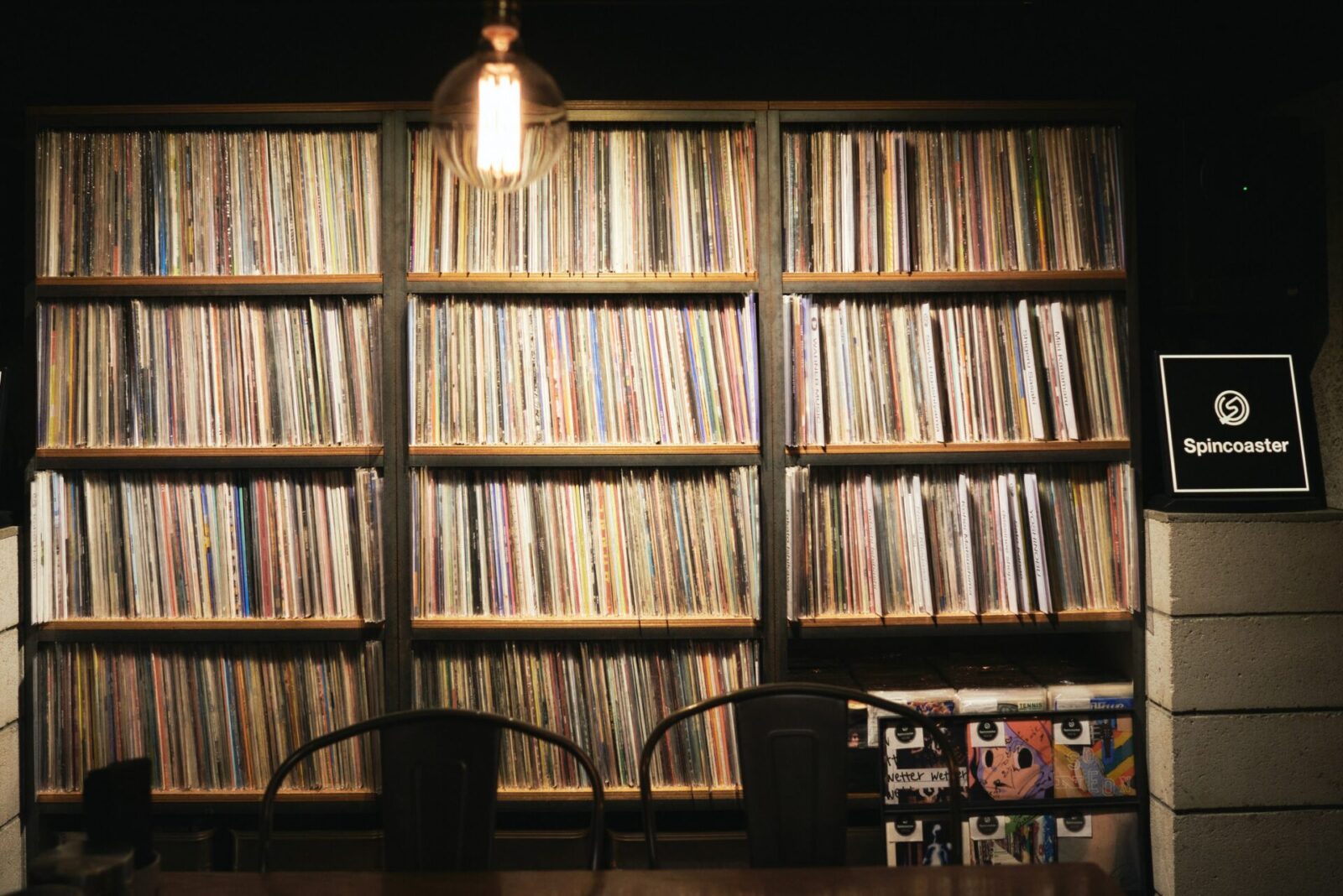
Hayashi was one of the first in Japan to create his own Spotify playlist called “Monday Spin.” When he heard that the music streaming service was going to officially launch their service in Japan in 2016, he immediately contacted the company and made an appointment.
“I made ‘Monday Spin’ to introduce new music, so I made a rule that the music has to be songs that have been released for no longer than three weeks.”
Most of the music on display in the Spincoaster Music Bar are also new records and CDs. Although many music bars play hit songs from the 70s and 80s, this bar is different.
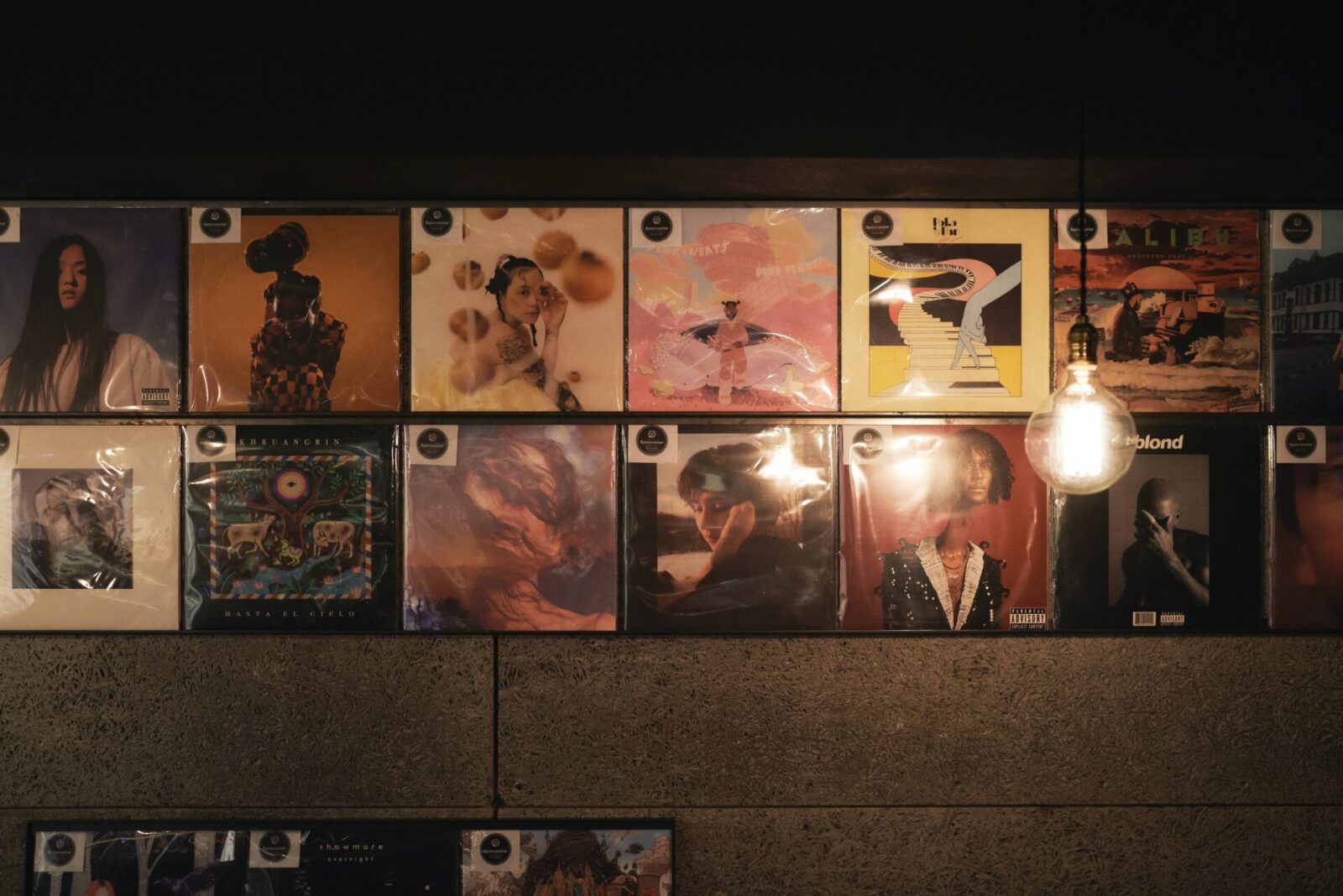
Hayashi also uses his skills in music selection to work as a playlist curator. He selects songs to play as background music in cafes and public places. Hayashi says, “The most important thing is to match the music with the environment. Next, I prefer to select new songs and music that stimulates imagination over the standard choices of music.”
Hayashi started out as an admirer of the indie music review site Pitchfork and has kept himself close to the newest creators in music. His music selections reflect his commitment to new music.
Designing a musical festival to “unwind”
“Our corporate philosophy at Spincoaster is to ‘Enrich lives through music,’ says Hayashi. “I put a lot of thought into this and all of the projects we are involved in are based on this philosophy. In order to enrich lives, it is important to have good communication between people. We thought about how music can be used for this purpose. Live performances, media, and apps all exist for this reason.”
As Hayashi mentioned, outdoor music festivals are one example of a place where people gather to enjoy music.
In 2021, a music festival called “Mind Travel” was held at the Lotte Arai Resort in Niigata Prefecture. The theme was to “Take a journey to unwind your spirit.” Miraculously, the event was scheduled right when the spread of the corona virus was momentarily slowed down in October, so music fans were able to enjoy a moment of full immersion in music.
Still, because of the coronavirus pandemic, there were many difficulties in the preparations for the event. Although they only had two months to prepare for the event, all measures to prevent infection, including vaccination certification and on-site antigen testing were put into place. They worked closely with the local municipal office and were able to successfully hold the event.
“I always wanted to plan a music festival and was looking for a good location to do it. I enjoy snowboarding and I once went to the Lotte Arai Resort. The location is great and they also have great infrastructure and hot springs. It is also easy to get to by car or public transportation so I decided I wanted to hold the music festival there.”

Hayashi chose the theme of this new outdoor music festival as “unwinding the spirit.” “Unwind” is a concept that Hayashi is focusing on in recent years.
The meaning behind the word “unwind” means to “bring the body back to its desired state.” It is a term that is often used along with the recent rise in popularity of saunas. It describes a state of relaxation and euphoria of the body and mind, while maintaining a clear state of consciousness.
Hayashi used to work at a sauna during his college years and has always been a fan so he wanted to bring that concept into the outdoor music festival and combine music with unwinding.
“At the Mind Travel event, we wanted to provide an experience where people could enjoy music while relaxing the mind and body and taking time to look inwardly towards oneself. In addition to having a live stage area, we had tent saunas and fire pits, spaces to enjoy CBD and relax with friends and family. Renowned architect Terunobu Fujimori helped create the gallery space where people could chill out and find a sense of peace away from everyday life.”
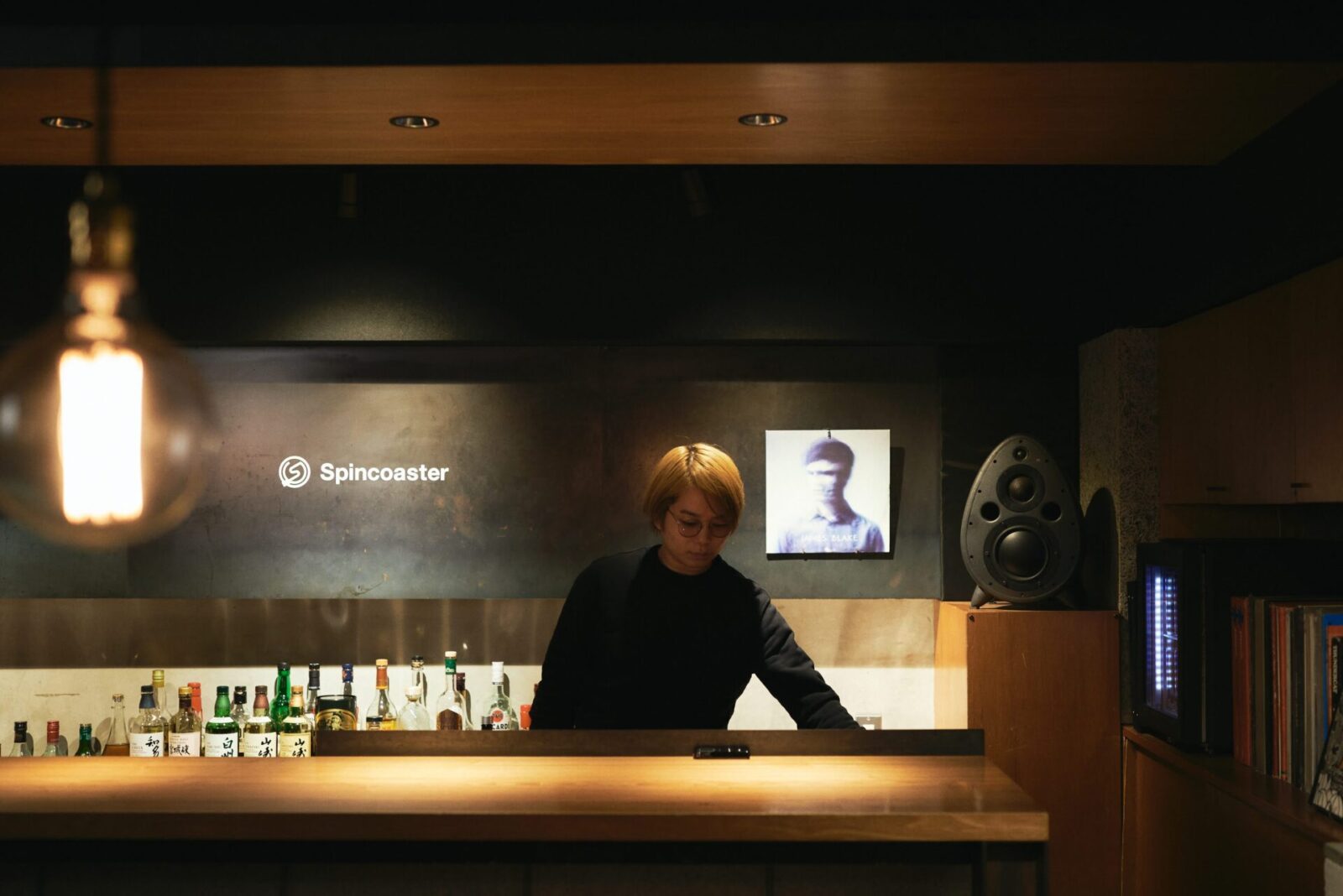
Mind Travel was not a large-scale festival, but received overwhelmingly positive feedback from participants. Hayashi says that he believed it was because the festival created a pleasant and comfortable atmosphere.
“Outdoor festivals tend to have surprisingly harsh conditions. People often have to walk long distances from stage to stage and the lines at bathrooms and food stands are long. Even after the coronavirus pandemic is over, I believe that the demand for medium-sized, comfortable, and well-controlled festivals will continue to grow.”
Spincoaster considered the convenience of the participants and developed an app for the music festival. The app allowed people to register for admission, ride the shuttle bus, and make reservations for the hot springs. Even among music fans who were used to attending big-scale outdoor events, they found that there was a strong demand for a slow and enjoyable event.
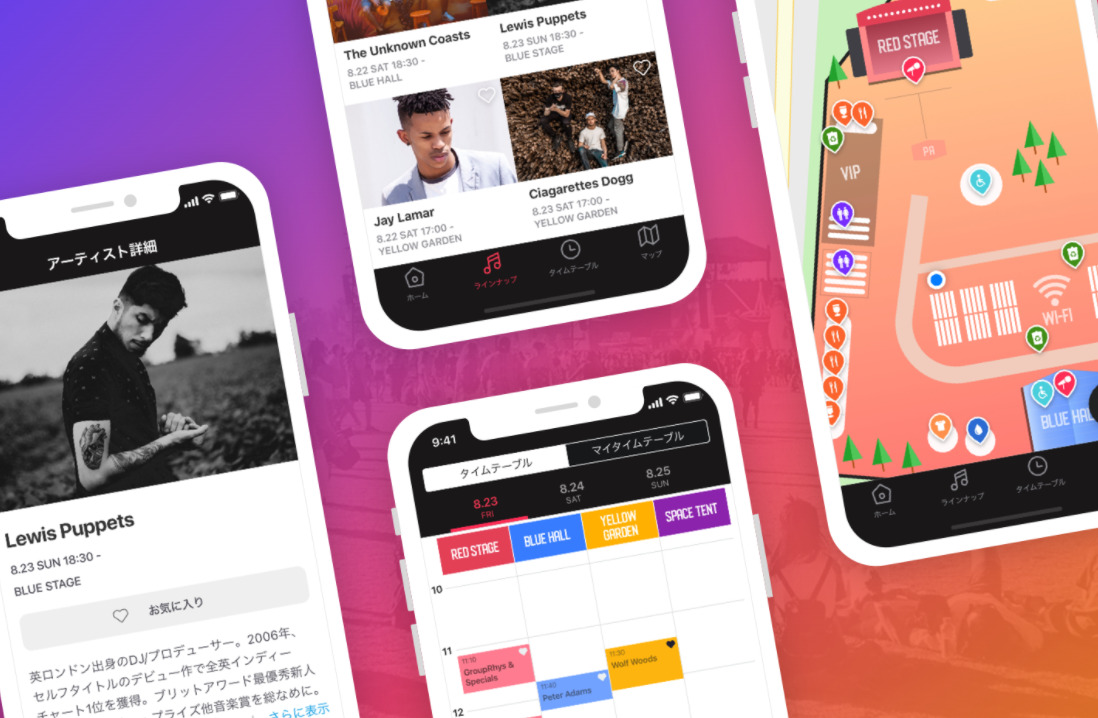
The use of digital technology comes from Hayashi’s background experience with working with IT venture companies and major record companies.
“When I was in college I worked at an IT venture company that my friend started and after graduation I worked at a major record company. Because I worked in the music industry after experiencing the IT industry, I had some ideas about how we could incorporate digital technology in the music industry in Japan.”
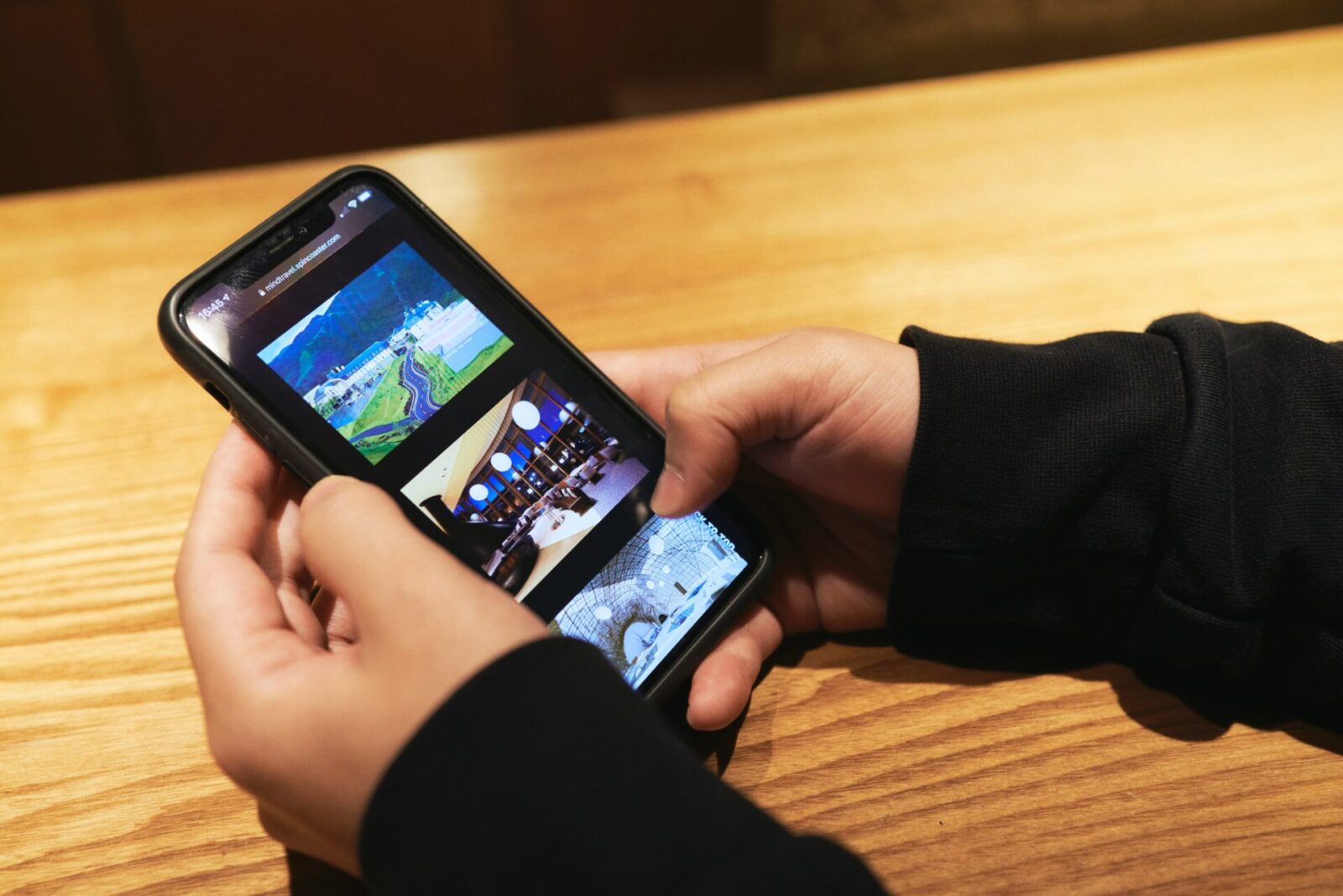
“One idea was with the music festivals. I had often traveled to music festivals overseas and it was already standard practice there to use apps at these events,” says Hayashi. “On the other hand, very few music festivals in Japan had implemented the use of apps. As a participant of the events, I felt the inconvenience of not having an app so we decided to create one ourselves. That was the beginning of ‘FESPLI.’”
Music will lead the future of the content business
It is said that the evolution of content business in the digital world often starts with music. Napster for example, while having its issues surround copyright laws, started in 1999 and allowed users to exchange music files online.
Later, Apple released the iPod in 2001 and many users were able to carry large loads of music data anywhere. In 2003, iTunes allowed people to purchase and download music online. In 2008, Spotify was released and instantly spread the use of streaming and the subscription model for music.
Now, people are looking at how concepts such as Web3 and NFT (non-fungible token) will change our relationship with music.

Hayashi expects that, in the music scene of the future, the key to sustaining and developing music culture will be in the integration of new technologies.
“The news of NFT art, which we see often these days, and the trend of people buying something because it can be resold for a higher price, does not really work in the music industry,” says Hayashi. “Instead, NFT and tokens in the music industry can be useful technologies that work as proof rights that cannot be replaced, such as preferential tickets or like dividends in the stock market.”
“For example, if it were possible to raise funds for the creation of new music by selling some of the rights to it, such as the master recording rights or music publishing rights, to the public before production, it could lead to the emergence of new creators. If music royalties could be distributed in a more accurate way than it is today, it will be possible to return profits to those involved in the production who have been left out so far. This will improve the sustainability of the industry as a whole. Spincoaster is working on developing these kinds of services now.”
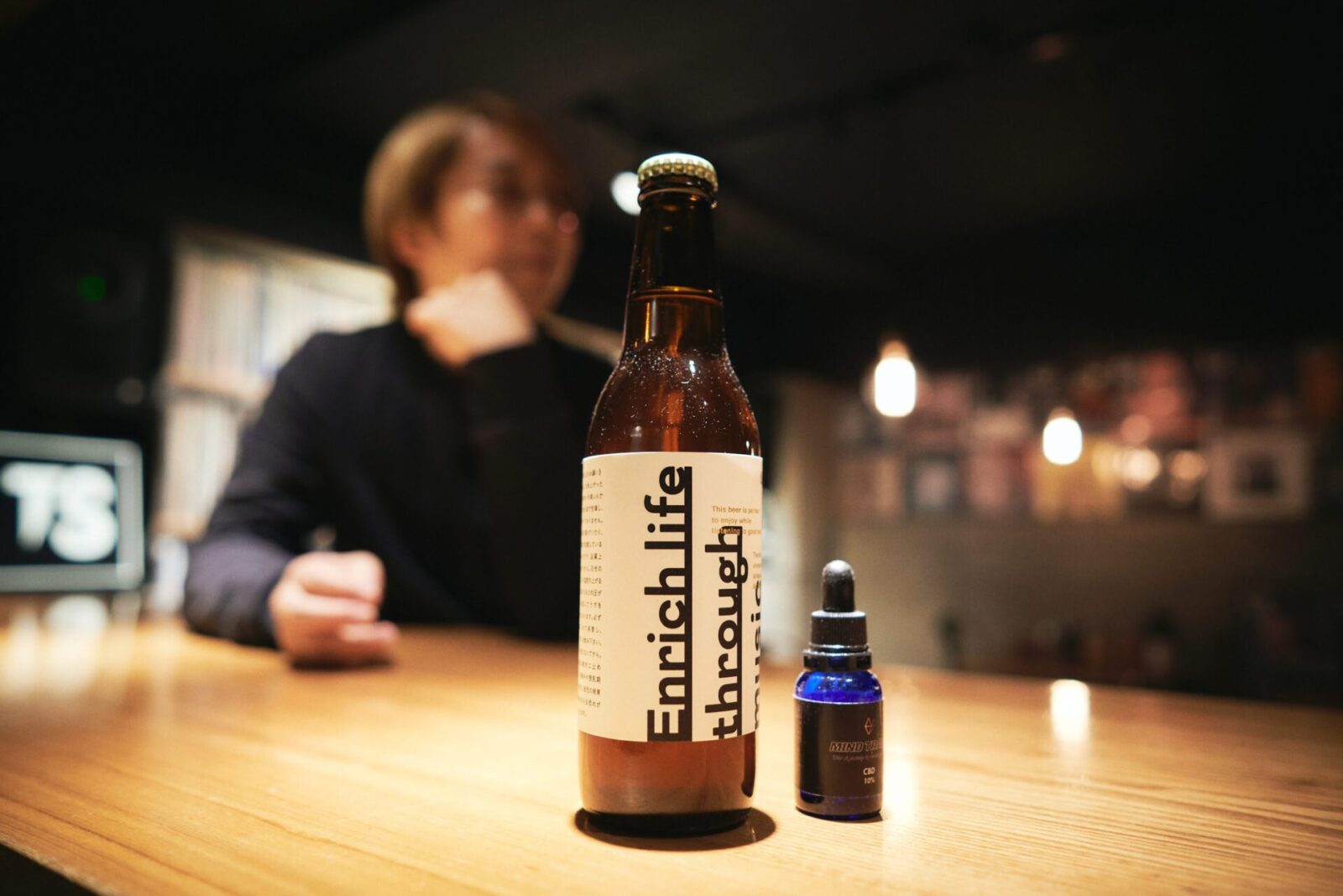
Enriching life with music
While being involved with new music, new technologies, and new businesses, how does Hayashi spend his days off? We asked him what he does for positive escape and he replied, “I travel and go touring on my motorcycle.”
“I enjoy experiences that have speed. When I am traveling on my motorcycle and listening to music while watching the scenery go by, I feel like I am in another world. Like the music video by The Chemical Brothers “Star Guitar”, I like to enjoy scenery and music together.”
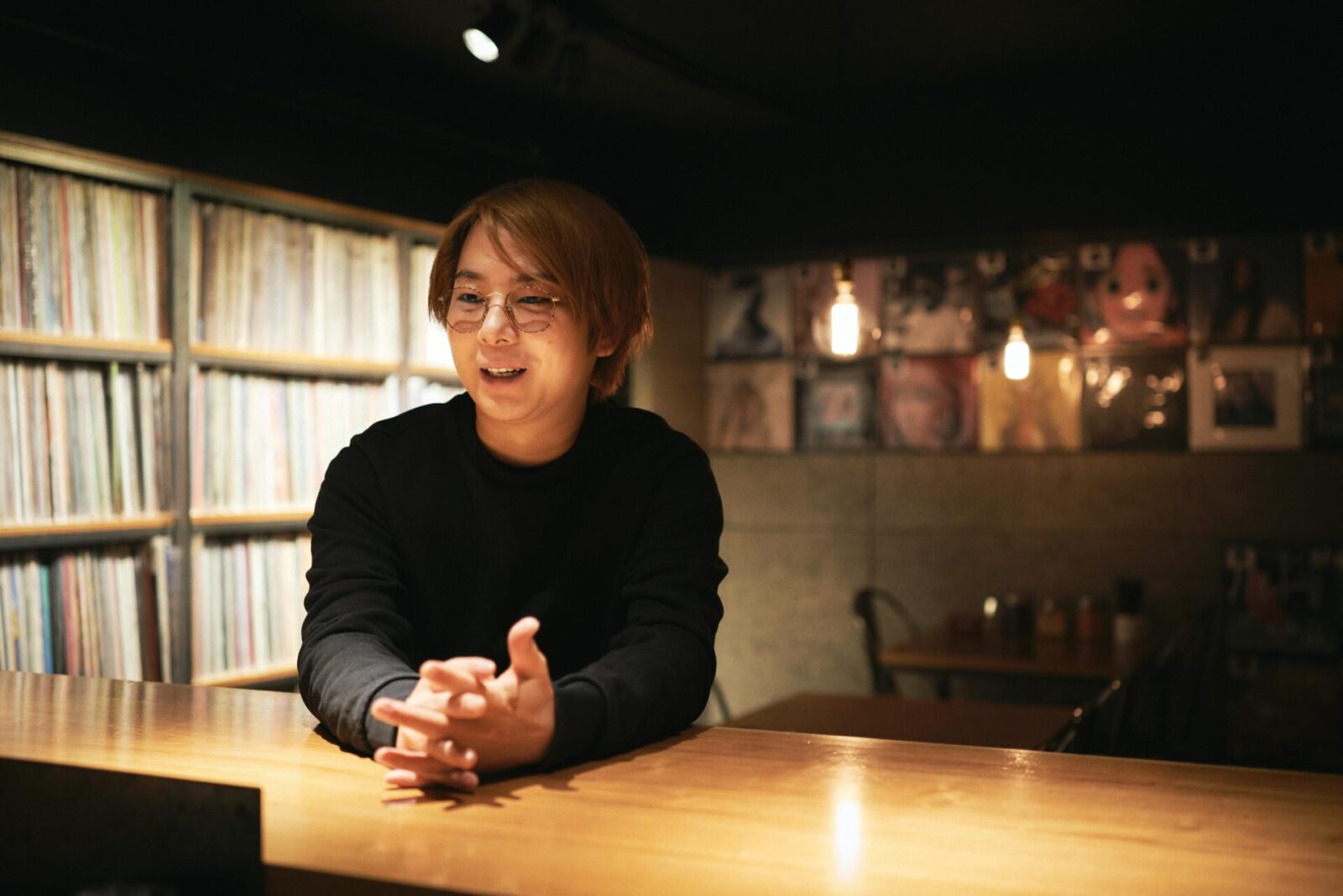
Lastly, we asked Hayashi about his relationship with music now. After pondering the question for a while, he answered:
“Music for me is something that gets me in tune with my emotions, whether it is to relax, motivate, or to be there when I am sad. It helps me tune into the state I need to be in at that moment. I try to find the right combination of music, audio environment, and location that suits me the best. The reason why I go to various saunas is also to tune myself into a state of relaxation. In that sense, I think I use both music and saunas as a way to unwind.”
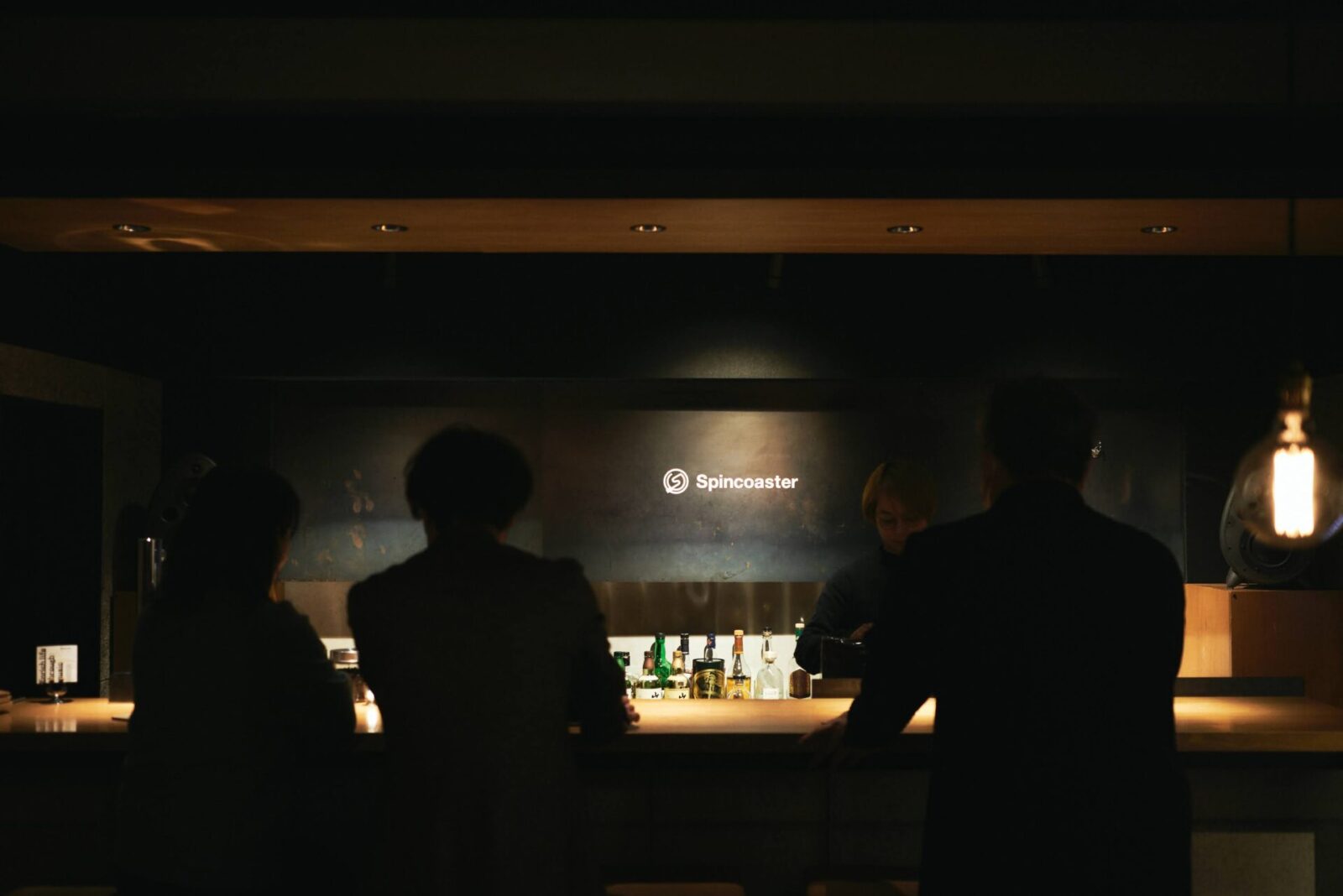
》The 2022 kick-off party “Mind Travel -Pre Party-” will be held on March 12. Click here for details.
Photo:Umihiko Eto
Translation:Sophia Swanson
Born in 1986,Okayama.While working at an IT company, works as an editor and writer. Writes about society, IT, and culture.
Editor. Born and raised in Kagoshima, the birthplace of Japanese tea. Worked for Impress, Inc. and Huffington Post Japan and has been involved in the launch and management of media after becoming independent. Does editing, writing, and content planning/production.
